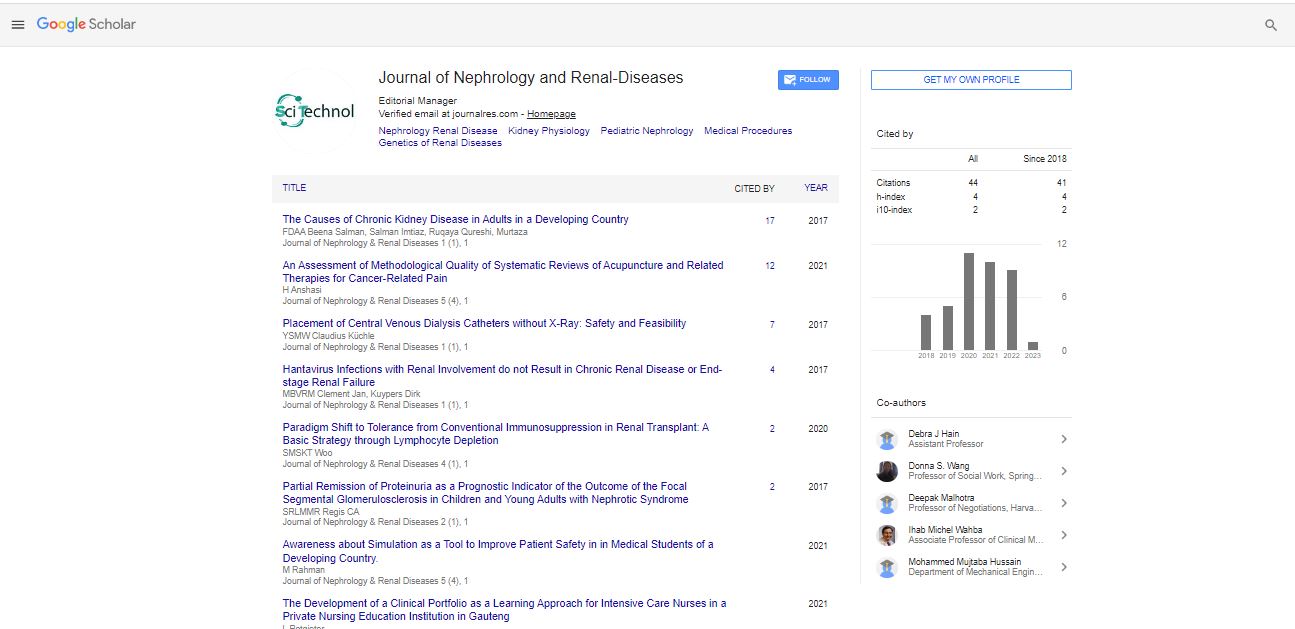The HIPPO signaling pathway in cervical carcinogenesis
Cheng Wang
Harvard Medical School, USA
: J Nephrol Ren Dis
Abstract
Statement of problem: Although accumulating evidence indicates that human Papillomavirus (HPV) alone is insufficient to induce cervical cancer cervical cancer (CVC), the exact molecular mechanisms underlying CVC development are largely unknown. Our previous studies indicated that the Hippo pathway played a critical role in regulating the proliferation and malignant transformation of cultured cervical epithelial cells. However, whether the Hippo pathway also drives cervical carcinogenesis in vivo is unknown.
Methodology: unique cellular models & transgenic mouse models were used to examine the potential role of the Hippo pathway in the initiation and progression of cervical cancer and explore molecular mechanism(s) by which the Hippo pathway drives the cervical carcinogenesis.
Findings: Doxycycline-induced expression of YAP1 in the cervical epithelial cells led to neoplasia of cervical epithelium within two months in KRT14-YAPS127A mice. Most KRT14-YAPS127A mice developed invasive squamous cell carcinomas (SCC) after induction with doxycycline for six months. Metastasis of SCC induced urethral and outlet obstruction in some KRT14-YAPS127A mice. Around 50% KRT14-YAPS127A mice died of SCC within 16 months of doxycycline induction. Compared to KRT14-YAPS127A mice, KRT14-E6/E7-YAPS127A mice developed SCC faster (within four months of doxycycline induction). Cancer cells derived from KRT14-E6/E7- YAPS127A mice were more proliferative and invasive. Mechanistic studies showed that ectopic expression of YAPS127A in human cervical epithelial cells resulted in a significant increase in cell susceptibility to HPV infection, while inhibition of YAP1 activity reduced the susceptibility of cervical epithelial cells to HPV infection. Intriguingly, we found that activation of YAP1 induced up-regulation of the putative HPV cellular receptor and disrupted innate immunity in cervical epithelial cells. Multidimensional cancer genomic data showed that disruption of the Hippo signaling pathway is a common event in human CVC, validating the clinical relevance of our findings.
Conclusion & Significance: Our research demonstrates that constitutive activation of YAP1 is sufficient to induce cervical CVC. Hyperactivation of YAP1 increases the susceptibility of cervical epithelial cells to HPV infection. HPV, in turn, synergistically promotes YAP1-induced initiation and progression of cervical cancer. The Hippo/ YAP signaling pathway may represent a promising target for developing novel strategies to prevent and treat cervical cancer.
Biography
Cheng Wang is a principal investigator in the Department of Gynecology & Gynecology, Massachusetts General Hospital and Harvard Medical School. Research in his laboratory focuses on uncovering the cellular and molecular mechanisms underlying the development of cancers in female reproductive organs, aiming to facilitate the effective prevention, early diagnosis and better treatment of these cancers.
E-mail: CWANG34@mgh.harvard.edu
 Spanish
Spanish  Chinese
Chinese  Russian
Russian  German
German  French
French  Japanese
Japanese  Portuguese
Portuguese  Hindi
Hindi 
